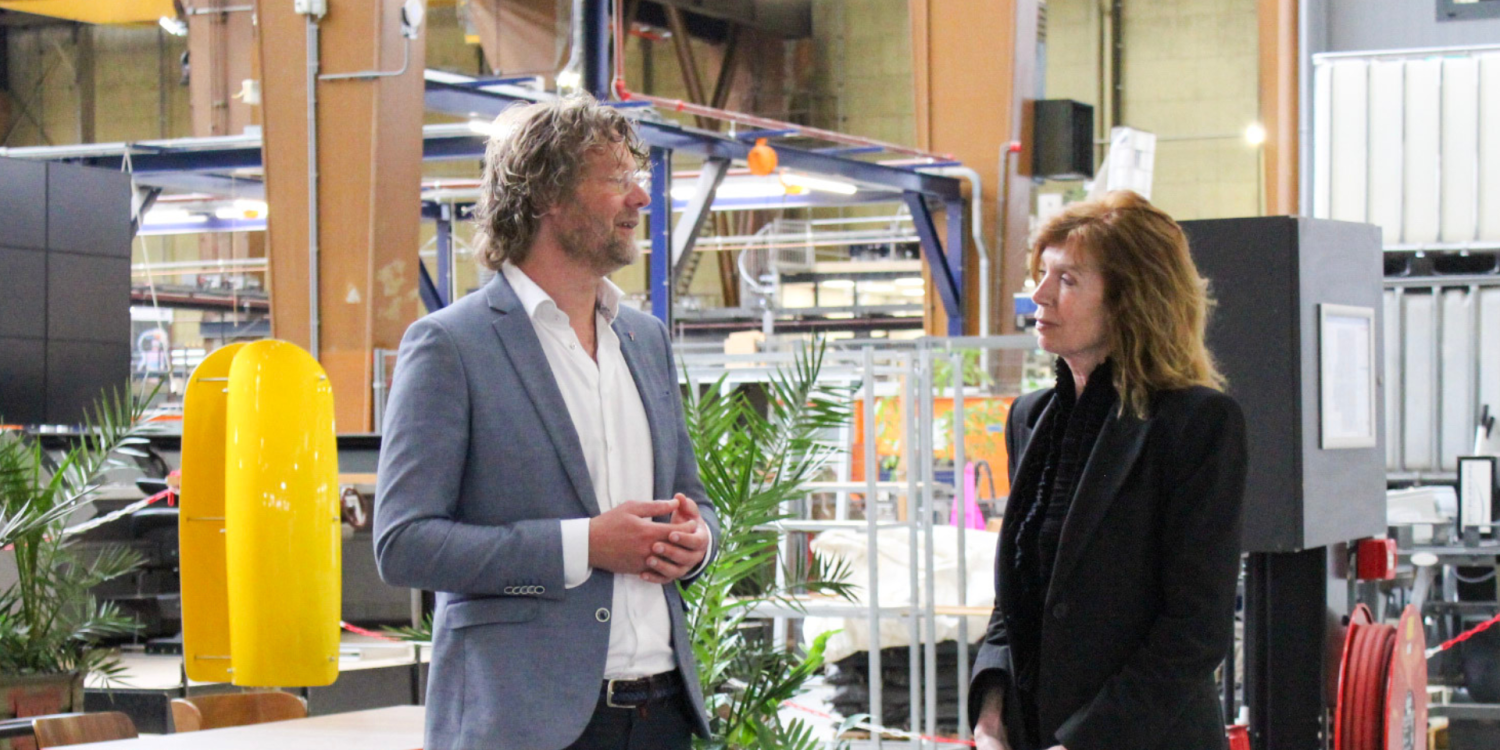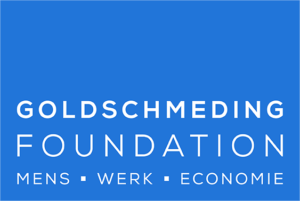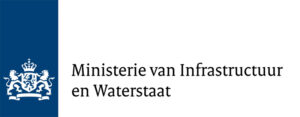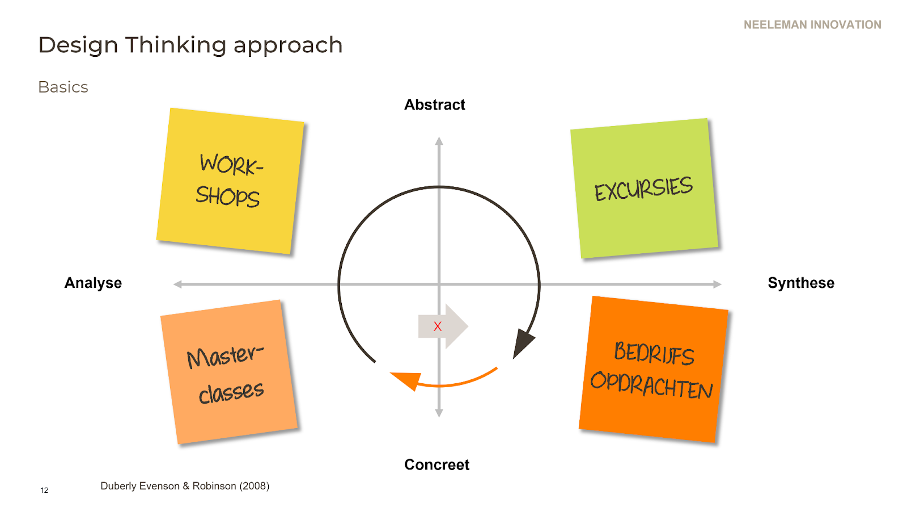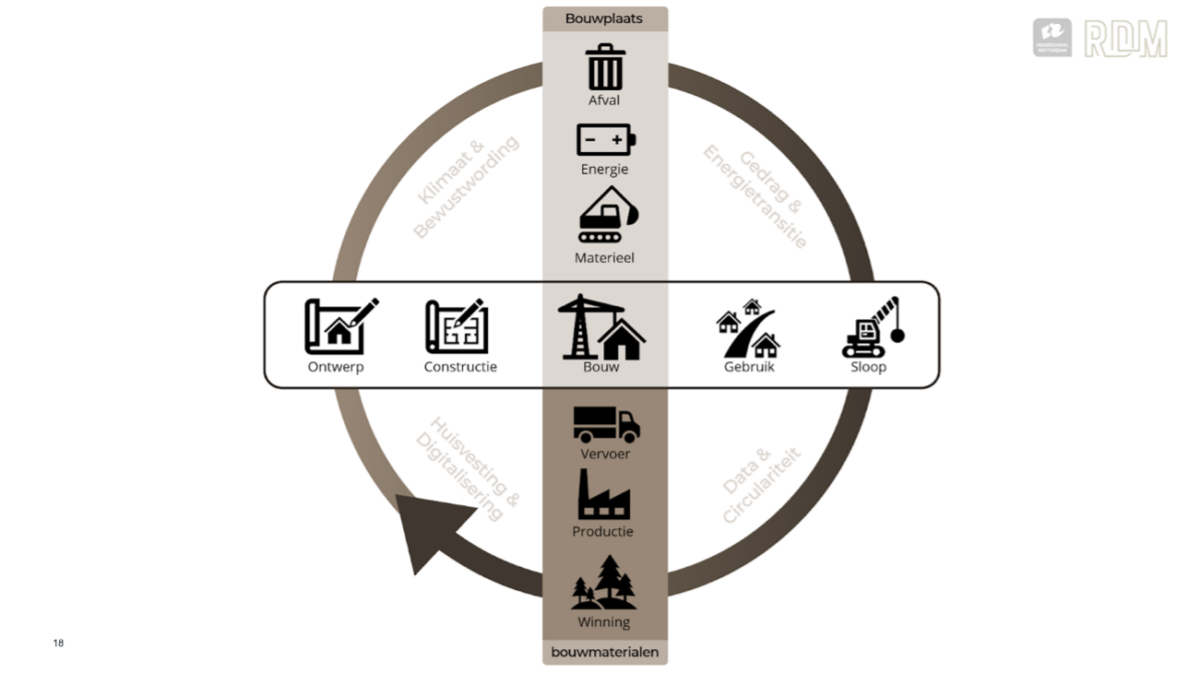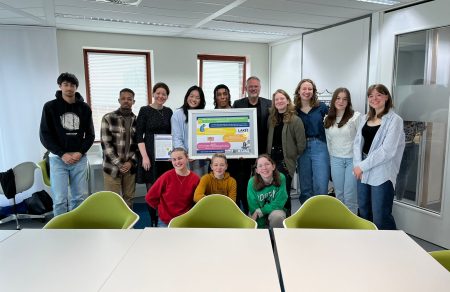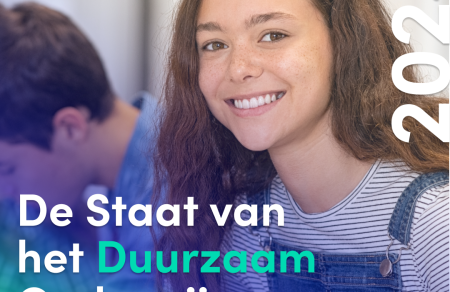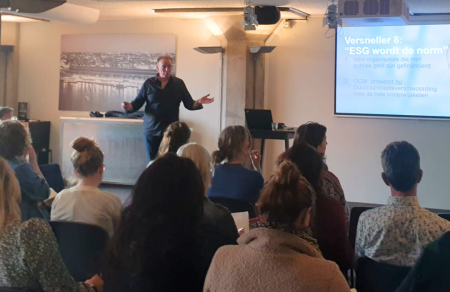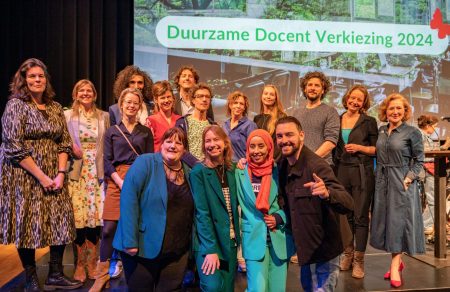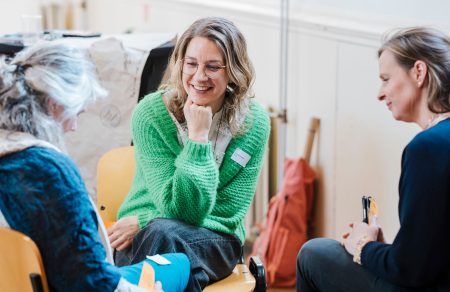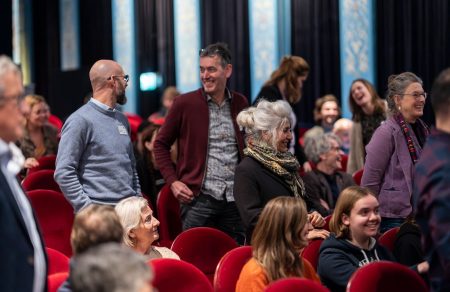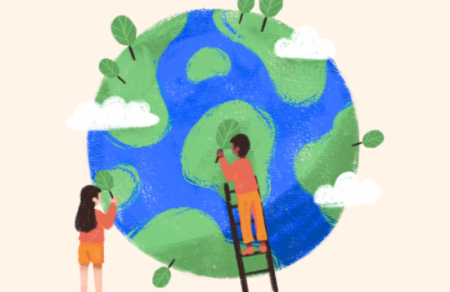This article is part of the Regioportret Rotterdam (article 1/3). With it we visualize how education and business in the Rotterdam region work together on 'circular skills': the skills needed in the circular economy of the future. We hope to inspire other regions to accelerate the transition to the circular economy.
For three years now, TIP (Talent Innovation Pool) has been connecting education with business. TIP is a learning community of third-year students at Rotterdam University of Applied Sciences and young professionals working in the construction industry. Together they work on an issue in the field of circular and zero-emission building. The goal of TIP is to narrow the gap between education and business and accelerate the transition in construction and education through task-oriented projects. Cora Jongenotter and Merijn Neeleman are the driving forces behind TIP. We talk to them about TIP, about their role in it and how they put people first.
Team TIP
Cora: "From my role as an interior designer with a business background, I started discussions with the Rotterdam University of Applied Sciences about a possible collaboration. TIP (Talent Innovation Pool) is the result of those conversations. A community that focuses on open collaboration with task-oriented education in which everyone's talent is deployed and people can and may learn from each other. Within TIP, "people" take center stage. "In my view, the people in the organization can make the difference in flexibility, agility and future orientation." Cora, Program Manager TIP Hogeschool Rotterdam and Core-Identity & Purpose Work, is concerned as an entrepreneur with building a circular economy."
Cora pulled the cart by herself for three years. Her ambition took TIP further, which generated more work. That's how Merijn came into the picture. With a background in industrial design, Merijn Neeleman, Neeleman Innovation, co-coordinator and facilitator of TIP, focuses on innovation and how to fuel it by bringing different perspectives together. "Achieving x percentage market share has never interested me. What did interest me was how to work toward value by connecting people. How can we use innovation in a meaningful way? That's what I'm passionate about. And TIP completely breathes that," Merijn said.
Education and business come together.
At TIP, third-year college students and young professionals working in business are paired together. This is a twenty-week program, similar to the internship period. "Together they get to work on an issue around sustainable building in workshops facilitated by us," Merijn said. To introduce this, a master class is given every other week by an expert from business or science that is open to both students and participating companies. Every other week, Cora & Merijn organize company visits and excursions for the students. Cora: "For example, we got a look behind the scenes at Renewi and Struikrovers, among others. The latter rescue bushes and trees from neighborhoods that are being demolished. Because why do we worry about the buildings to be demolished, but forget about the greenery?"
At TIP, the task and the learning process are paramount. Merijn: "The approach you often come across is one of quick fixes: quickly getting to the solution. Whereas for this transition it is very important to take a step up by identifying the underlying problem together. This requires asking the 'why' question a few extra times. The TIP program itself is also coordinated according to this philosophy. At TIP, the result is important, but the program and planning are not set in stone. Developments in the projects are anticipated and adjusted where necessary. "We challenge both students and young professionals to make mistakes, because you learn much more from mistakes than from doing everything right," says Cora.
What you create with this collaboration is that there is much more to be gained from it for both parties than the "sum of the parts. The students, while learning, can gain more experience. And the companies benefit greatly from the young knowledge and enthusiasm of the students. But even more important is the merging of the many perspectives on an issue. We let experts, multiple companies and multiple courses look at one issue together. And create an understanding of each other's role in it and perspective on it. That will ultimately make the difference in carrying out the larger transitions that are essential to our future.
No sauce over an old system
"Small changes are far from sufficient," Cora said. It's a complete system change within construction and education where collaborations need to be reinvented and an ecosystem built. Now if you can't offer something that directly meets expectations of companies they still tend to fall back on the old. Within education, the same is actually true. Students are currently educated with outdated knowledge and are not included in opportunities that already exist as well as in rapid developments. This is also TIP's biggest challenge: "How can we take parties along to this new way of cooperation in which they see their own opportunities?"
Construction is currently focused only on nitrogen, CO2 and money. Education in its way only on grades, credits and knowledge mashing. But where is the human being in all this? That should be the most important thing, because ultimately it is up to man to actually implement changes. Merijn: "You have a number of steps in a construction process where people can make the difference. And you don't only make that difference when you start working somewhere, after your education, but also during your studies. For example, in design, you have to consider the waste that is generated, how to reduce it and how to reuse the residual material. On the construction site, there is a lot about behavior, which you also learn in school. For example, too much is ordered structurally, because the focus is on deadlines and not on smart purchasing. Demolition material is then created during the construction itself. And much of that 'waste' can be easily reused, sometimes almost unprocessed. You can really make a strong business case out of it. Only now it depends on many separate, often small initiatives. For the coming years it is of fundamental importance that these start to cooperate more and jointly determine what the large demolition streams will look like. There is a lot to be gained there. And that requires data, a harvest vision, cooperation, digitization and trust. And what do you need for that? A strong shared understanding of the task among all the people involved....
In true Rotterdam fashion: don't bullshit, but polish!
As far as Cora is concerned, the challenge lies in guts and leadership. "Both education and business need to put their feet in the clay, accept that uncertainty is the only certainty and embrace together that the outcome is not always known."
That sounds woolly, but to break patterns, that's what we need to do. What is it really about? The participation of companies is most important. If they collectively embrace TIP, we can show that circular and zero-emission building is a system change that requires interdisciplinary work. And we desperately need all stakeholders for that, task-oriented education is a joint challenge!
What Cora and Merijn hope for the future is that education like TIP will become the standard. That in addition to many companies, not only colleges, but also the mbo institutions will join in and that task-based learning will become standard in the curriculum from the first year. "Because only then can you really make strides," Cora said.
Author and photography: Clarisse Kers-van der Veld
Want to learn more about educating for an inclusive, sustainable future?
Sustainability Skills
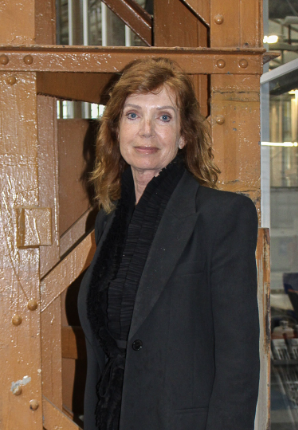
Cora is an enthusiastic Innovation Manager, speaker and chairperson who has an eye for trends and developments. Inspired by developments around the circular economy, the translation to, among others, circular building is a breeding ground that brings out the best in her. The circular economy offers space to everyone who wants to and is able to work!
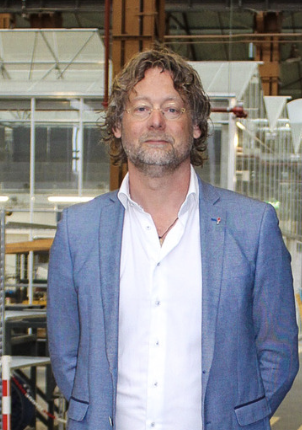
With a background in industrial design, Merijn Neeleman, of Neeleman Innovation, focuses on innovation and how to fuel it by bringing different perspectives together. He is passionate about working toward value by connecting people and leveraging innovation in meaningful ways.
